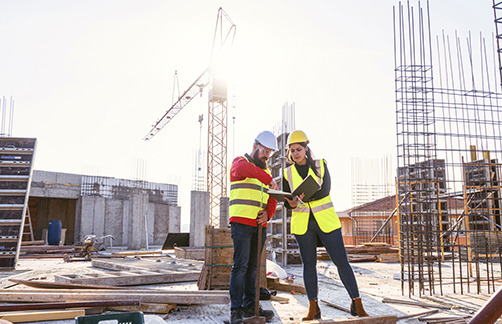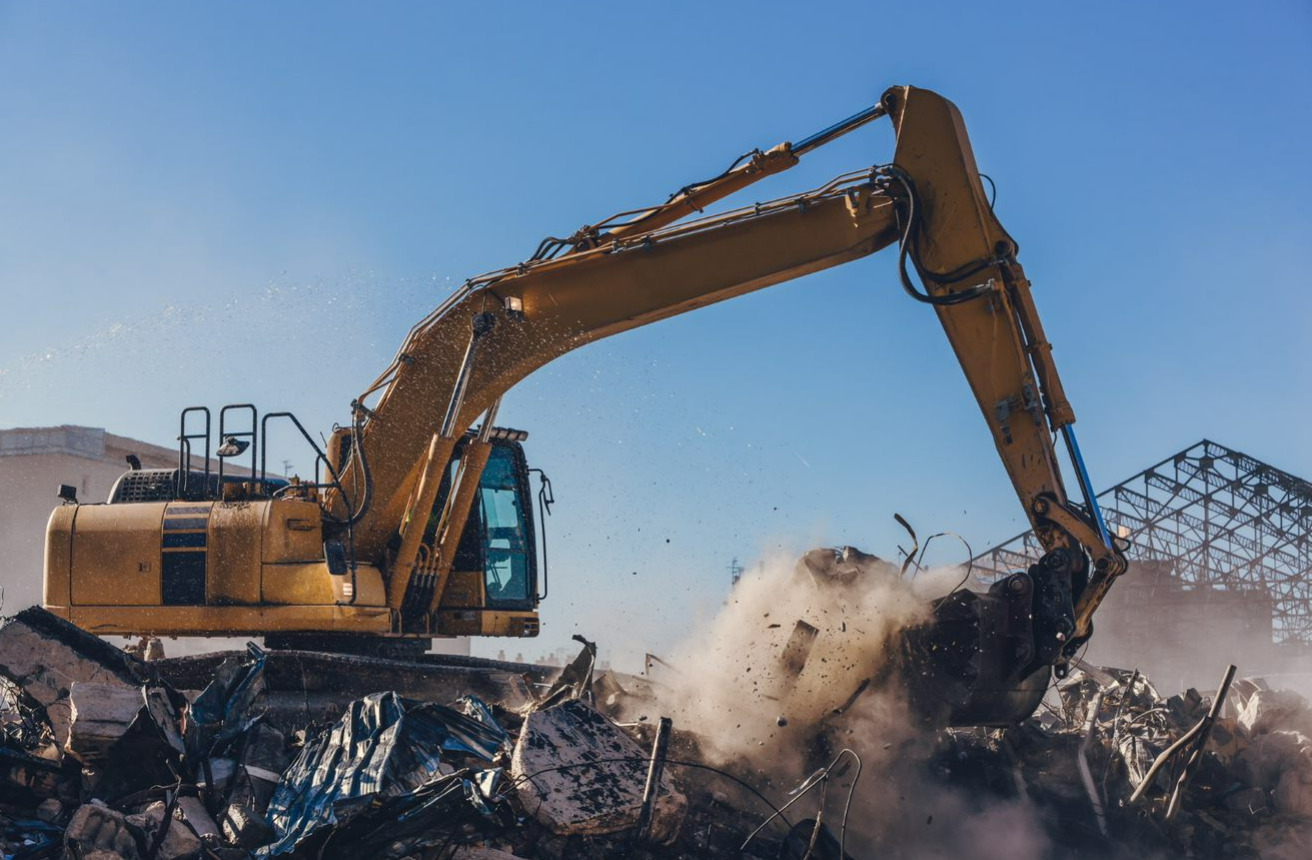The construction industry must build 300,000 homes per year to meet UK demand. With labour shortages and sustainability imperatives, innovative solutions are critical. Modern Methods of Construction (MMC) like offsite fabrication can speed up building while reducing waste. Paired with data platforms like SmartWaste, MMC unlocks the potential for a more efficient industry.
In this article, we will explore MMC, the challenges it presents, and the innovative solutions being employed to tackle these. We’ll share success stories that highlight the potential of MMC and look ahead to the future of this approach to sustainable construction.
SmartWaste: data-driven waste reduction and environmental reporting
Developed by BRE, SmartWaste, is an integrated digital platform for optimised resource management. By tracking detailed waste data from design to demolition, it allows targeting of waste reduction across the building lifecycle.
Clients like social housing provider L&Q are utilising SmartWaste to set radical reduction goals and systematically drive progress. “With the 2050 net zero target in mind, we must prioritise designing out waste where possible,” says L&Q’s Irina Leigh. Early adopters have already achieved up to 99% waste diversion from landfill.
What is MMC and how can it transform construction?
MMC refers to innovative construction techniques focused on offsite manufacturing, technological integration, and collaborative planning. By moving certain aspects of construction to controlled factory environments, MMC enables faster, lower-waste assembly of higher quality building components.
Technologies like building information modelling (BIM) and modular construction introduce new efficiencies while reducing environmental impact over a building’s lifecycle. Standardisation improves quality control and interoperability between systems and components.
Success stories demonstrate MMC’s viability for projects from high-rise residential buildings to university research centres. By embracing MMC, the industry can address pressing issues such as skills shortages, rising costs, and sustainability goals.
Harnessing SmartWaste for next generation waste management
SmartWaste is a digital platform designed to help construction firms minimise waste, track environmental performance, and adopt more sustainable practices. It provides insights needed to optimise resource use across design, procurement, construction, and lifetime operation.
When paired with offsite fabrication and other MMC techniques, SmartWaste empowers clients to establish radical waste reduction targets across all project phases, from excavation and manufacturing to construction and demolition. The platform enables granular tracking at key points that generate construction debris, all while providing analytics to model, monitor, and minimise environmental, social, and governance impacts. By proactively using SmartWaste to set and manage detailed waste goals, clients can transform each project to dramatically lower and divert waste volumes from landfills.
The critical role of waste reduction in achieving net zero
In a recent article, Irina Leigh, production innovation architect at housing provider L&Q, highlighted the overlooked yet critical role of construction waste reduction in achieving net zero targets. With the built environment being the largest waste producing sector in the UK, Leigh argues that
minimising waste not only reduces our environmental impact but also supports our housebuilding efforts and helps us save money too.
Whilst MMC approaches can help reduce on site waste, L&Q is also tackling this issue through digital tools like SmartWaste to gain transparency into waste volumes, identify problem areas, and systematically drive reductions. When paired with modern methods of construction, data-driven waste management promises radically lower waste.
Leigh emphasises the need for greater awareness and priority around designing out waste across the building lifecycle –
With the UK government’s 2050 net zero target in mind, it is time to think and talk more about waste, designing it out where possible, using technologies at our disposal and utilising resources responsibly.
In our case study you can see how accurate reporting on carbon emissions is helping Maylim set and achieve its sustainability and CO2 reduction objectives. Recording the materials used on its projects in SmartWaste provides clearer and more representative data to inform its sustainable construction policies and advise clients accordingly. Maylim’s core values include a duty to ensure good environmental performance in all business operations.
In June 2021, Maylim introduced its Environmental and Sustainable Construction Policy Statements. SmartWaste provides us with real time data to monitor and improve Maylim’s environmental performance. Since deploying the platform, Maylim has exceeded its targets and it will become a central tool to quantify Scope 1, 2 and 3 emissions and achieve the organisation’s net zero carbon aspirations. Maylim has regular contact with the SmartWaste team, who are consistently helpful and responsive.
Maria Troy, Quality & Compliance Manager
The path forward: an integrated approach
Truly embracing innovation requires collaboration among all industry stakeholders including clients, architects, engineers, contractors, tradespeople, and manufacturers. Investing in skills training and aligning policies and incentives will accelerate MMC adoption. And using digital tools like SmartWaste is key to maximising sustainability.
By taking an integrated approach, MMC methodologies enhanced by SmartWaste data promise faster, higher quality, and more sustainable construction. The time is now for the industry to leverage these innovations in pursuit of a greener built environment. Each new project provides an opportunity to contribute to a cleaner, brighter future.
Watch our SmartWaste demo video
Find out why over 20,000 users choose SmartWaste.
SmartWaste insights
Browse the latest insights from SmartWaste – BRE Group

How SmartWaste enhances Modern Methods of Construction (MMC)

SmartWaste and ESG reporting: driving sustainable change

SmartWaste V11: paving the way to net zero carbon and sustainability in construction

Driving the sustainable construction revolution with SmartWaste

25 years of SmartWaste: a journey towards sustainability excellence
